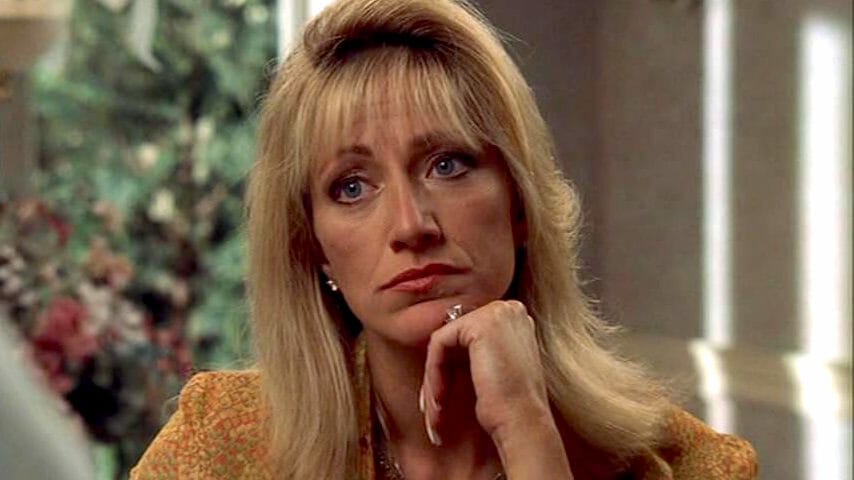TV Rewind: Why Carmela Soprano Is Quietly One of TV’s Most Frightening Characters
Photos Courtesy of HBO
Editor’s Note: Welcome to our TV Rewind column! The Paste writers are diving into the streaming catalogue to discuss some of our favorite classic series as well as great shows we’re watching for the first time. Come relive your TV past with us, or discover what should be your next binge watch below:
![]()
The first time I watched The Sopranos in its entirety, in my early 20s, I was young enough and dumb enough to take Tony Soprano more or less at face value. I realized he was a bad person, but I realized it abstractly; his morality was less interesting to me than the mob story being told—whether he would kill Richie Aprille, or Ralph Cifaretto, or Phil Leotardo, and whether he’d emerge from each conflict as the alpha don of the Jersey mob. I was fully roped into the logic of his criminal world, reveled in his revenges and affairs and his simplistic thug’s philosophy, while mostly tolerating the other, “boring” stuff; the therapy, the domestic life, his kids. In this approach, I had a lot in common with hundreds of YouTube commenters, who can be seen today beneath every Sopranos clip arguing the merits of some hit or another, or extolling the codes by which these characters supposedly live. Simply put, this is a show that appeals on one level to people with testosterone, and testosterone tends to cloud over quite a bit of nuance.
That first time, I was watching HBO’s masterpiece the way you’re supposed to watch The Godfather. Francis Ford Coppola, for all his artistry, wasn’t going too deep; you were meant to buy into the romance of the subculture. He wanted to fascinate the viewer, and he wanted the viewer to root for Michael Corleone. Part of the brilliance of The Sopranos is that you can absolutely watch the show on this same level. If that weren’t true, it wouldn’t have been anywhere near as successful. The drama is riveting, the characters are funny, and you’re drawn into the nuts-and-bolts story of the New Jersey mafia.
But—big problem—this is not how you’re supposed to watch it.
These many years later, I just finished my third series re-watch, and maybe it’s because I’m older, or maybe it’s because four years of Trump have rendered me less susceptible to the charms of a sociopath, but this time around I viewed it more as a horror story. It was more brilliant than ever, don’t get me wrong, but the parts that I had ignored the first time around—the family, Dr. Melfi—resonated like never before. It made sense to me, finally, what they were really trying to say, and then it made me sad that I had so thoroughly missed the point the first time around.
In short, the lesson I took is that Tony Soprano and all his underlings are horrible people who have dedicated their lives to increasing human suffering, that any “creed” adhered to by a criminal syndicate is ultimately bullshit, and any charm or humanity they exhibit is either a put-on designed to manipulate, or a glimmer that will soon be snuffed by never-ending greed that drives them. They are the embodiment of capitalism’s dark side, and though the writers revel in having them humiliate the WASPs who play by the rules of the rigged system (if you see a character wearing a sweater, he’s about have his head caved in by a very angry Italian-American), they are nonetheless its grim foot soldiers, devoid of empathy and valuing nothing but violence and power.
Which brings me to Carmela Soprano, played by Edie Falco in a performance that seems to become more staggeringly brilliant with each re-watch. Tony is a sociopath, and as his shrink Dr. Melfi finally discovers after six seasons and several years, he’s an irredeemable one. Everyone he claims to love can be betrayed and killed in an instant, and even his family suffers. Carmela, though, grew up as a civilian. She knew what she was getting into by marrying Tony, and in fact she liked it. She liked the material benefits, the expensive house, the clothes and jewelry, but even on a visceral level she was attracted to the volatility and ruthlessness. When Tony loses a fight to his brother-in-law Bobby in the final season, he’s afraid Carmela will stop finding him attractive. She mocks the idea, but in fact watching him beat up another boy in high school was a major part of her initial attraction, and when Tony’s in the hospital with a gunshot wound, she weeps telling him how his physical power was a turn-on. She was somebody who wanted to take a walk on the wild side, and not just for the money.
But because she’s a civilian and not a sociopath, Carmela struggles with the trade-off. One of the most brutal scenes in the entire series comes when a psychiatrist she visits refuses to sugarcoat her lifestyle, or to indulge her with notions of compromise. And it rocks her to her core:
-

-

-

-

-

-

-

-

-

-

-

-

-

-

-

-

-

-

-

-

-

-

-

-

-

-

-

-

-

-

-

-

-

-

-

-

-

-

-

-








































